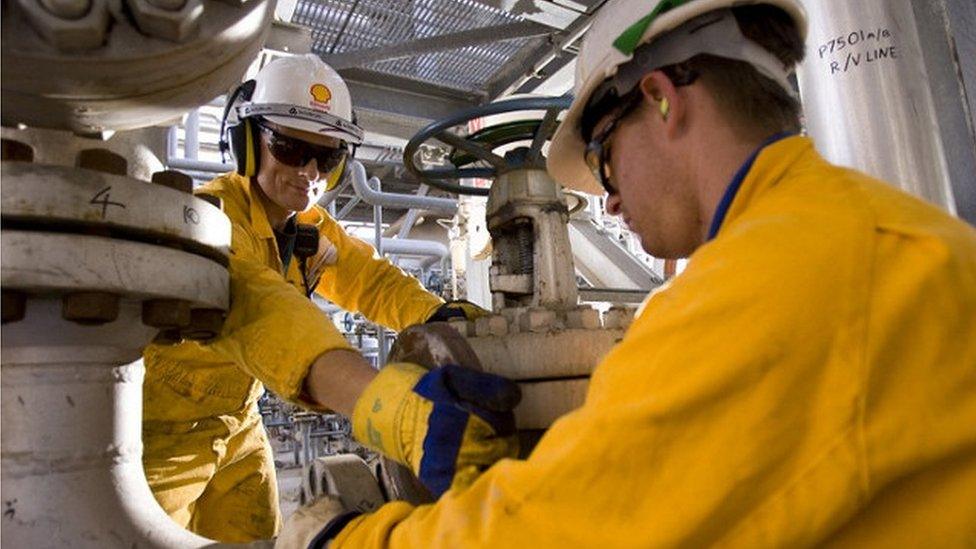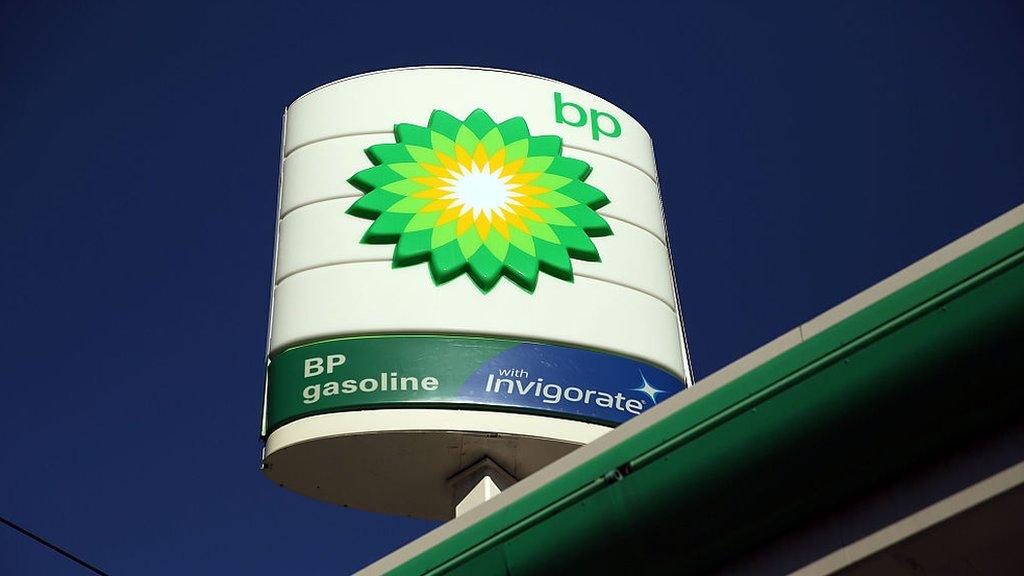Royal Dutch Shell sees profits jump as oil price rises
- Published

Royal Dutch Shell's profits surged in the first three months of the year on the back of rising oil prices.
The Anglo-Dutch giant said profits on a current cost of supply measure (CCS) - which strips out price fluctuations - jumped to $3.4bn (£2.6bn) from $1bn last year.
A 55% rise in oil prices in the first quarter of 2017 compared with a year earlier was the main driver of profits.
Excluding one-off items, profits on the CCS measure were $3.86bn, up 136%.
Shell joins rivals BP, Exxon Mobil, Chevron and Total in reporting better-than-expected results.
More than $1bn in cost savings and budget cuts made over the past three years from cost-cuts and assets sales have also helped to increase cash flow and boost profits.
But Shell chief executive Ben van Beurden said the company would be making $25bn worth of investments this year in new oil and gas projects. "We continue to reshape Shell's portfolio and to transform the company," he said in a statement, external.
Oil and gas production, known as upstream, rose 2% in the quarter to 3.752 million barrels of oil equivalent from 3.661 million in the first quarter of 2016. A number of new fields continued to ramp up output, particularly in Brazil and Kazakhstan.
Earnings from refining, marketing and chemicals also rose 20% to $2.5bn.
"We saw notable improvements in upstream and chemicals, which benefited from improved operational performance and better market conditions," Mr van Beurden said.
Investors welcomed the results, marking Shell's shares up 3% at the start of trading, although they later fell back to finish the day flat.
Energy producers across the world are reaping the benefits of higher oil prices, which have strongly increased their revenues and profits.
Crude has recovered thanks to the Opec oil producers' cartel adhering to a production cut agreed late last year. However, the oil price has eased back recently.
- Published2 May 2017
